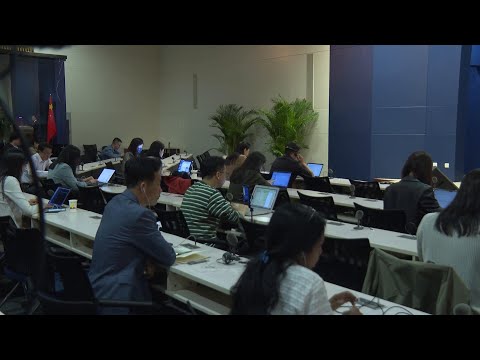(16 Apr 2024)
ASSOCIATED PRESS
Beijing – 16 April 2024
Spokesperson: Lin Jian
STORYLINE:
1. President Xi Jinping met with visiting German Chancellor Olaf Scholz today, and we note that the leaders of the two countries exchanged views on issues such as the Ukraine crisis and the Israeli-Palestinian conflict. Could you share more details of their talks?
Regarding the Ukraine crisis, China and Germany are committed to upholding the purposes and principles of the UN Charter, including safeguarding sovereignty and territorial integrity. This is a necessary foundation for a sustainable security framework and should be respected. China and Germany encourage and support efforts to seek a political solution to the crisis in Ukraine and are willing to maintain close and active communication on holding high-level meetings in Switzerland and other relevant international conferences in the future. China and Germany jointly oppose the use or threatening use of nuclear weapons and attacks on peaceful nuclear facilities such as nuclear power plants, call for proper resolution of international food security issues to ensure global food security without hindering food production and exports and call for compliance with international humanitarian law, protection of civilians, early release of prisoners by the two sides and adherence to their basic rights.
As to the Israel-Palestine conflict, China and Germany are concerned about the dire humanitarian situation in the Gaza Strip and the escalating risks in the region. China and Germany jointly call for ensuring unimpeded and sustainable humanitarian access to the Gaza Strip, supporting the UN and its Relief and Works Agency for Palestine Refugees in the Near East in coordinating humanitarian relief efforts, implementing UN Security Council Resolution 2728 and the two-state solution, which we believe is the only way towards lasting security and peace between Israelis and Palestinians. We call for jointly safeguarding the security of maritime trade routes based on international law, especially in the waters of the Red Sea.
2. What is China’s expectation for Foreign Minister Wang Yi’s visits to Indonesia, Cambodia, and Papua New Guinea from 18 to 23 April?
China looks forward to implementing the important consensus reached between President Xi Jinping and the leaders of the three countries through this visit, promoting high-quality joint building of the Belt and Road Initiative, deepening the construction of the China-Indonesia and China-Cambodia community with a shared future, injecting new momentum into the comprehensive strategic partnership between China and Papua New Guinea, and continuously advancing bilateral relations to new heights. China is willing to work with the three countries and other regional nations to strengthen unity and cooperation, maintain peace and tranquility, and make positive contributions to the peaceful and stable development of the region and the world.
3. Last week, the Myanmar junta lost control of the strategic border town of Myawaddy. What is China’s view on this? With the ongoing loss of territory by the military government, is China considering engaging more openly with the increasingly powerful anti-military resistance groups?
China calls on all parties to cease hostilities and resolve their differences through dialogue and consultation in a peaceful manner to avoid further escalation of the situation.
4. Chinese Foreign Minister Wang Yi and his Iranian counterpart, Hossein Amir-Abdollahian, held phone talks on Monday regarding the tensions between Israel and Iran. Could you share more details?
Find out more about AP Archive: http://www.aparchive.com/HowWeWork
Twitter: https://twitter.com/AP_Archive
Facebook: https://www.facebook.com/APArchives
Instagram: https://www.instagram.com/APNews/
You can license this story through AP Archive: http://www.aparchive.com/metadata/youtube/f0b4404ad6634db3b1a0b3db1a2609f6





